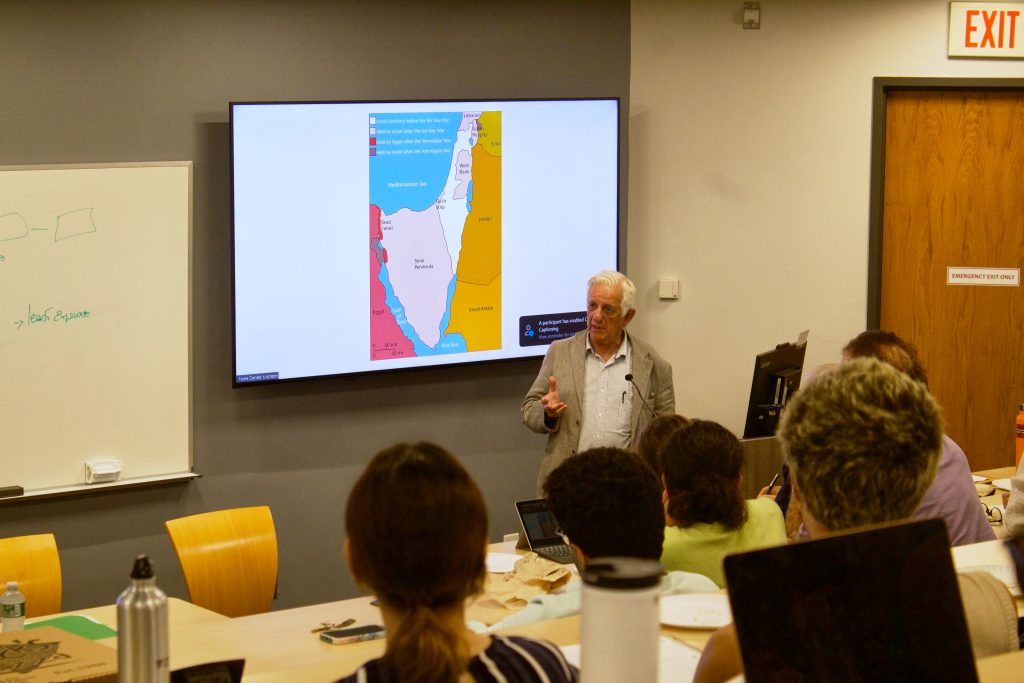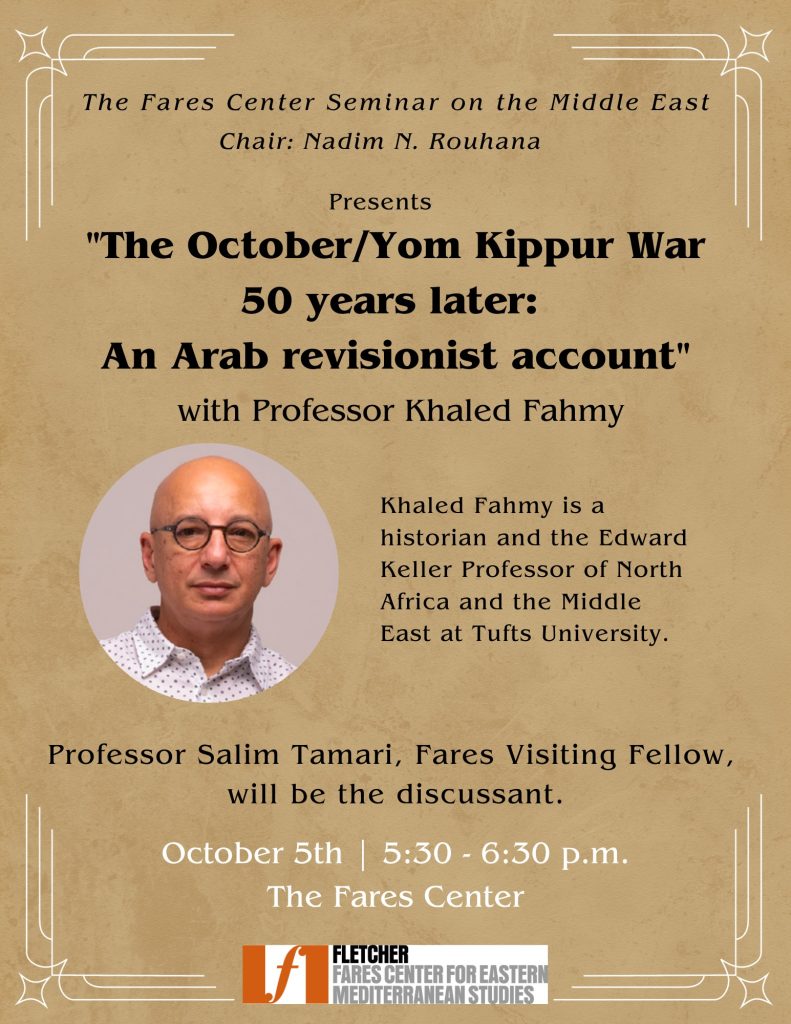
The October / Yom Kippur War Fifty Years Later: An Arab Revisionist Account
On Thursday, October 5th, the Fares Center hosted a talk on The October / Yom Kippur War fifty years later: An Arab revisionist account with Professor Khaled Fahmy. Professor Salim Tamari, Fares Visiting Fellow, was the discussant for the event. The event gained a lot of interest from the Fletcher and Tufts community as well as the broader academic community in Boston. It was attended by over 70 people, who actively engaged with the speaker during the discussion section.
Fahmy provided an overview of the October War based on Egyptian sources. Namely, the memoirs of Saad el-Shazly, Chief of Staff; Abd al-Ghani al-Gamasy, Chief of Operations; Ahmed Ismail, Minister of war and Commander in Chief (he did not write a memoir but gave many interviews); and Anwar Sadat, President of Egypt at the time. Their accounts serve to tell the story of the years leading up to 1973 as well as the development of the War itself.
Following the 1967 War, Egypt was focusing on the Sinai and planning to reclaim it. Eventually, on October 6th the Arab coalition launched a surprise attack. While the beginning of the War was very successful for the Egyptian army, they failed to capitalize on that moment. Shazly claimed this is what the plan was, a defensive plan. But Fahmy was skeptical of these claims, “They won, so why not use the momentum?.” Additional unanswered questions remain about Egyptian plans regarding the War. For example, were they envisioning open war or simply forcing the opening of diplomatic negotiations? In addition to providing a thrilling account of the 1973 War, Fahmy also talked about the role of Ashraf Marwan, who is believed to have been a double agent, working for both the Egyptian and the Israeli intelligence.
Egyptian president Sadat eventually took decision to keep going with tanks on open terrain. It is not clear why Sadat approved this plan since everyone else in his cabinet was opposed to it except for Ismail. The military campaign brought uneven results, but it did have significant political consequences. At the 1978 Camp David Accords that followed the war, Israel withdrew from the entire Sinai peninsula.

While 50 years have passed since the October War, in all these decades the primary historical source of the War has been Israel. Egypt continues to keep the official documents related to the War confidential, and thus, Egyptian and Arab historians have to rely on foreign records when writing about it. Using the memoirs and interviews of these four Egyptian leaders, Fahmy is trying to tell an Arab account of this War. He emphasized the importance of exploring Egyptian sources through social history methods to bring to light decisions and key pieces of information, and also to learn from the past to deduce the right lessons for the present time.

